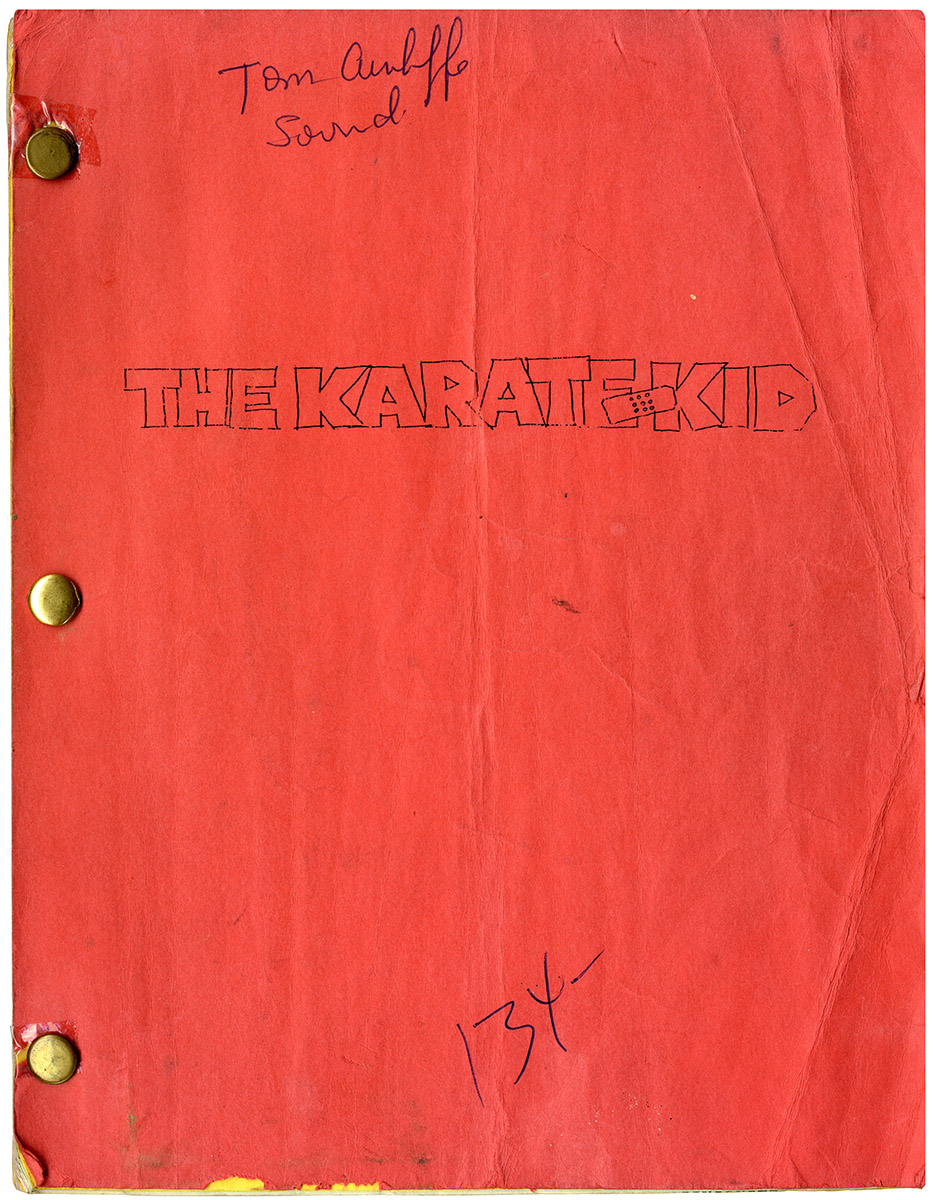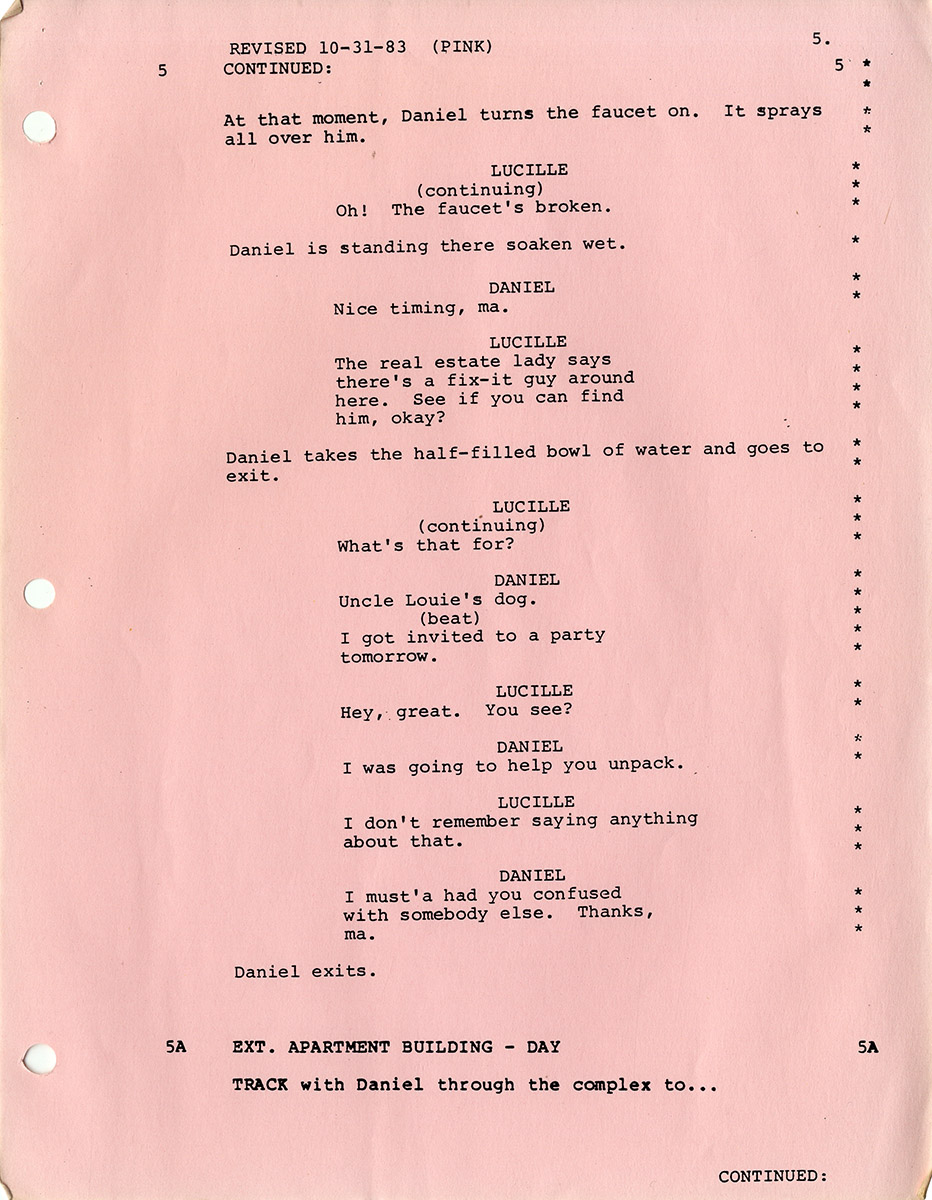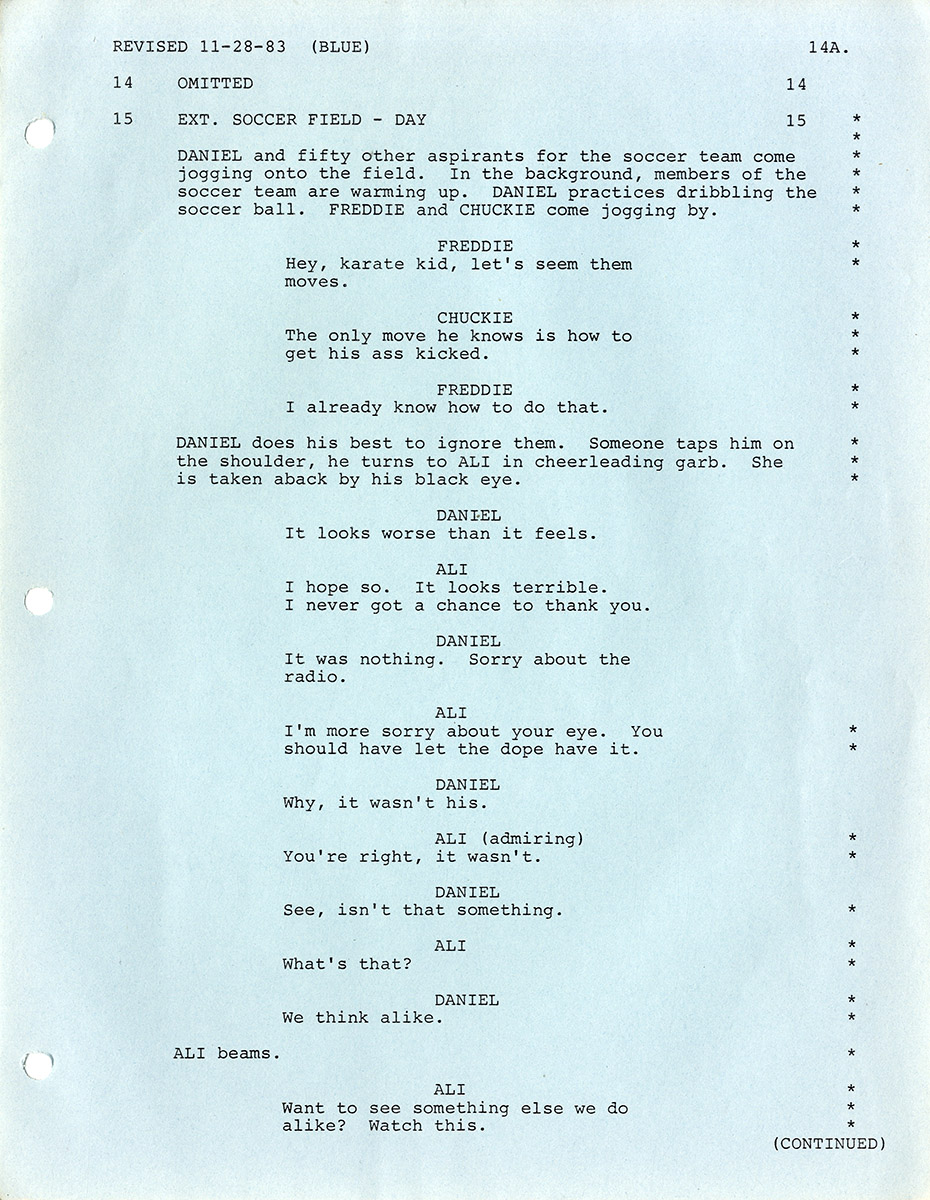KARATE KID, THE (1983) Rainbow film script by Robert Mark Kamen
[Hollywood: Columbia Pictures], 1983. Vintage original film screenplay, 11 x 8 1/2″ (28 x 22 cm). Printed wrappers, brad bound, mimeograph (with the final pages photocopied). Lacks blank back wrapper. This is a rainbow script, with many pages of revisions on different colors of paper, with dates from 10/31/83 through 12/22/83. 107 pp., with 25 pp. of shooting schedule bound in at back. A name written on front wrapper of a member of the sound department does not correspond to the film’s known credits. Light wear, overall very good+.
The first film in one of the most popular franchises of the 1980s, The Karate Kid was based on an original screenplay by Robert Mark Kamen and directed by John G. Avildsen.
Like Avildsen’s 1976 mega-hit Rocky, The Karate Kid is the story of an underdog fighter and his older trainer, and how the two of them go about preparing the fighter for his big match. Only in The Karate Kid, the would-be fighter is Daniel (Ralph Macchio), an Italian-American teenager from New Jersey, his trainer/mentor is a Japanese-American handyman from Okinawa named Mr. Miyagi (Noriyuki “Pat” Morita), and the fighting sport is not boxing, but karate.
Formulaic as it may sound, much of The Karate Kid rings true due to the fact screenwriter Robert Mark Kamen based the story on his own coming-of-age experiences. He, too, was beaten up by bullies and learned to defend himself thanks to a Japanese mentor who taught him karate. Kamen has become one of the most successful writer-producers in the world. With his most frequent collaborator, French auteur Luc Besson, he co-wrote the sci-fi classic The Fifth Element (Besson, 1997).
Kamen’s The Karate Kid spawned three sequels (the first two written by Kamen) and two 21st century remakes. With Besson, he went on to create two other highly profitable franchises, the Taken and Transporter series.
What helps to make The Karate Kid screenplay as effective as it is are the other elements Kamen adds to the mix. When Daniel comes from New Jersey to Southern California with his single mom, he meets a girl (Elizabeth Shue) from the other, wealthier side of the tracks, adding a note of class consciousness to the underdog narrative, while also making it a fish-out-of-water story. Daniel’s mentor Mr. Miyagi is also given an interesting backstory. While Miyagi was serving honorably as a soldier for the United States during World War II, his pregnant wife was interned in the Manzanar internment camp where she and Miyagi’s unborn child died during childbirth.
In terms of subtext, Daniel becomes a substitute for Miyagi’s unborn son, and Miyagi becomes the father that Daniel lacks. The story’s ending — Daniel, against all odds, wins the karate tournament — is what everyone in the audience wants to see, making The Karate Kid one of the quintessential 80s feel-good films.
Out of stock
Related products
-
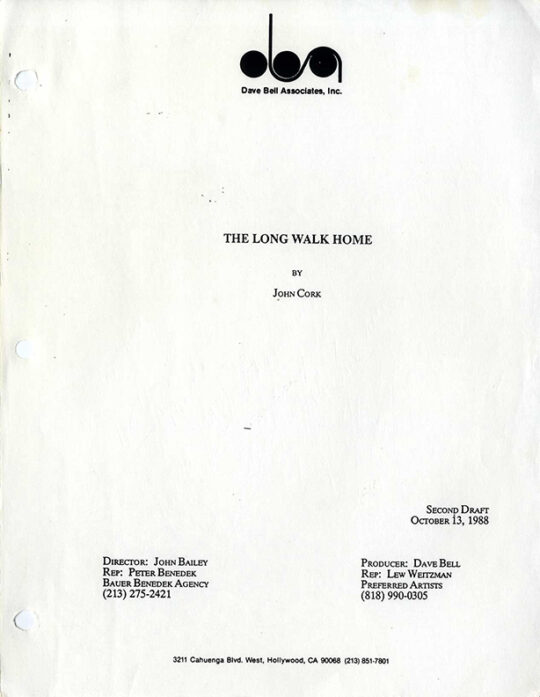
LONG WALK HOME, THE (Oct 13, 1988) Second draft film script by John Cork
$375.00 Add to cart -
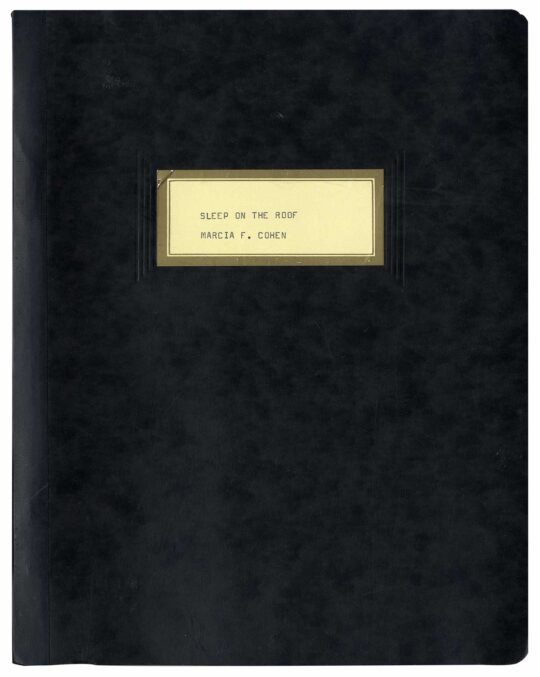
SLEEP ON THE ROOF (1967) Unproduced script based on the life of Margaret Sanger
$500.00 Add to cart -
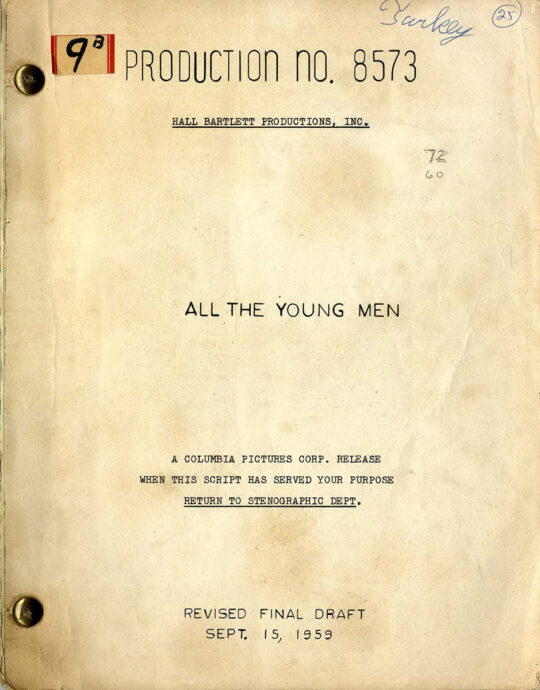
ALL THE YOUNG MEN (Sep 15, 1959) Revised Final Draft script by Hall Bartlett
$450.00 Add to cart -
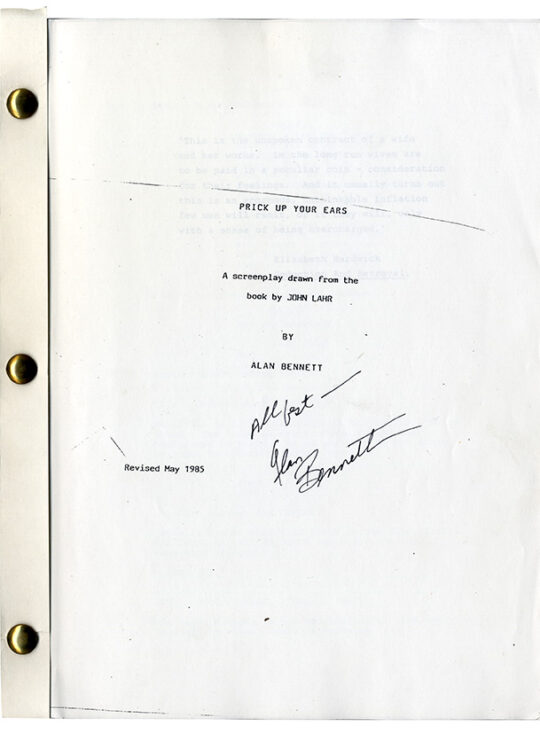
PRICK UP YOUR EARS (May 1985) Revised film script
$650.00 Add to cart

